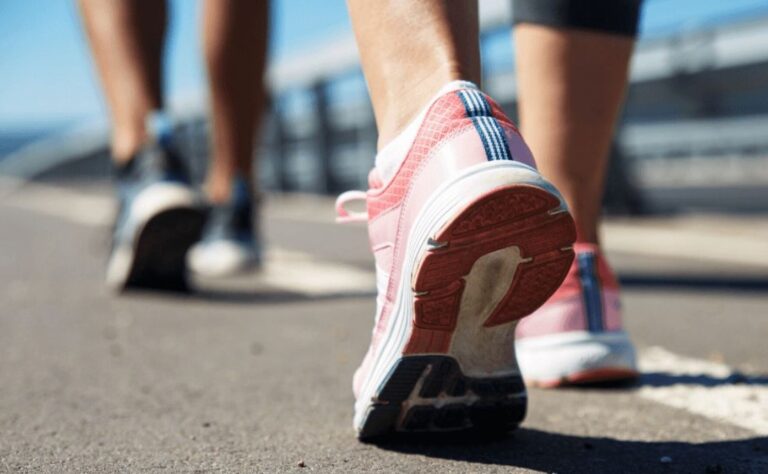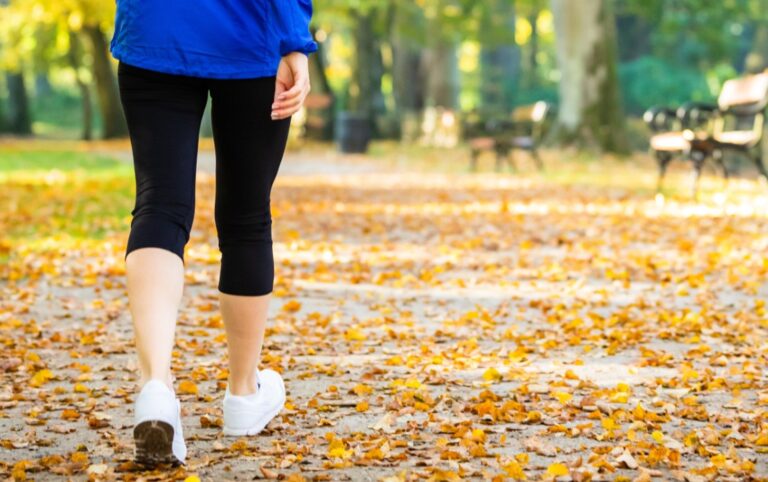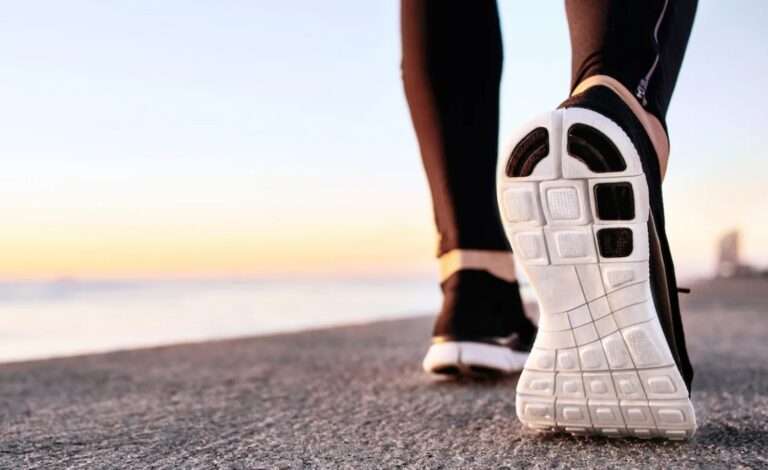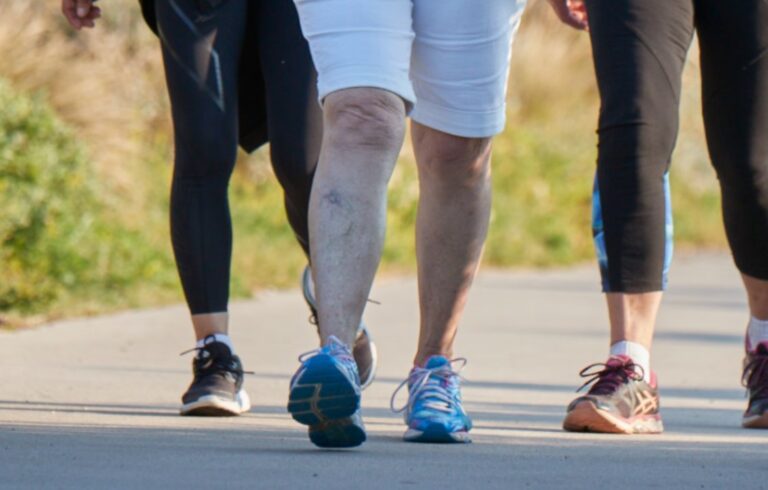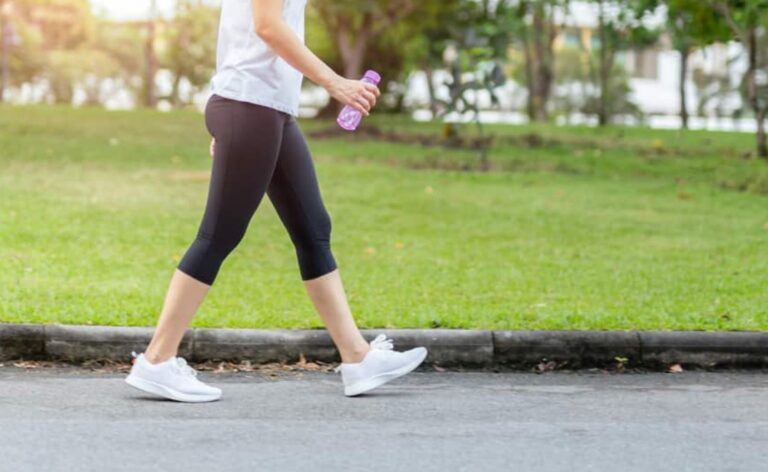How Long Does It Take to Walk 1.5 Miles by Age, Gender and Pace?
The time it takes to walk 1.5 miles varies based on several factors, including age, gender, walking pace, and fitness level. On average, a brisk walk at a speed of 3.5 mph may take around 25 to 30 minutes, but individual times can range from 20 to 35 minutes.
Here we’ll explore the factors that influence the time it takes to walk 1.5 miles, considering age, gender, walking pace, terrain, and even the use of a treadmill. Whether you’re an experienced walker or just starting, this guide aims to provide insights into the benefits of walking and the diverse factors that impact the time it takes to cover 1.5 miles.
How Far is 1.5 Miles?
Before we delve into the details of walking time, let’s establish the distance. One and a half miles is equivalent to approximately 2.41 kilometers, a distance that provides a solid workout while remaining achievable for individuals at various fitness levels.
How Many Steps in 1.5 Miles?
The number of steps required to cover 1.5 miles depends on your stride length, which can vary from person to person. On average, individuals take approximately 2,000 to 2,500 steps per mile. Therefore, walking 1.5 miles could involve roughly 3,000 to 3,750 steps.
Chart: Converting 1.5 miles into different units
| Conversion | Value |
|---|---|
| Kilometers | 2.41 km |
| Meters | 2414 meters |
| Yards | 2640 yards |
| Feet | 7920 feet |
| Inches | 95040 inches |
| Nautical Miles | 1.30 nautical miles |
How Long to Walk 1.5 Miles by Age and Pace?
The time it takes to walk 1.5 miles can vary significantly based on both age and walking pace. Here’s an estimated breakdown:
| Age Group | Slow Pace (2 mph) | Moderate Pace (3 mph) | Brisk Pace (4 mph) |
|---|---|---|---|
| 20s | 45 minutes | 30 minutes | 22.5 minutes |
| 30s | 50 minutes | 27 minutes | 20 minutes |
| 40s | 55 minutes | 24 minutes | 18 minutes |
| 50s | 60 minutes | 22.5 minutes | 17 minutes |
| 60s+ | 67.5 minutes | 20 minutes | 15 minutes |
How Long to Walk 1.5 Miles by Gender and Pace?
This table estimating the time it takes to walk 1.5 miles based on gender and pace. The pace is given in minutes per mile.
| Gender | Pace (min/mile) | Time to Walk 1.5 Miles |
|---|---|---|
| Female | 15 | 22.5 minutes |
| Female | 20 | 30 minutes |
| Female | 25 | 37.5 minutes |
| Male | 15 | 22.5 minutes |
| Male | 20 | 30 minutes |
| Male | 25 | 37.5 minutes |
How Long to Walk 1.5 Miles in Different Terrain?
The type of terrain you’re walking on can influence your pace. Here’s an approximate breakdown:
| Terrain | Average Time |
|---|---|
| Flat surface | 20 – 25 mins |
| Hilly terrain | 22 – 28 mins |
| Uphill | 25 – 32.5 mins |
How Long Does It Take to Walk 1.5 Miles on a Treadmill?
Walking on a treadmill provides a controlled environment. Here’s an estimate based on various speeds:
| Treadmill Speed | Average Time |
|---|---|
| 2 mph | 45 minutes |
| 3 mph | 30 minutes |
| 4 mph | 22.5 minutes |
Calories Burned While Walking 1.5 Miles
The number of calories burned while walking 1.5 miles depends on factors such as weight and pace. On average, a person may burn around 100-150 calories during a brisk 1.5-mile walk.

Factors Affecting the Time to Walk 1.5 Miles
Several factors can influence the time it takes to walk 1.5 miles, including:
- Age and fitness level
- Gender
- Walking pace
- Terrain and elevation changes
- Rest breaks
Walking On Crowded Vs. Empty Pathways
The environment in which you walk, whether it’s a crowded or empty pathway, can also affect your walking time. Here’s how:
| Crowded Pathway | Empty Pathway |
|---|---|
| If you find yourself walking on a crowded pathway, you may encounter obstacles that can slow you down, such as pedestrians, cyclists, or even street vendors. | Walking on an empty pathway allows you to maintain a consistent pace without interruptions, resulting in a quicker completion time. |
| To navigate through crowded pathways efficiently, consider choosing less busy times of the day or exploring alternative routes. | Make the most of your walks by finding less-traveled paths or parks with fewer visitors. |
By being aware of the walking environment and adapting to the conditions, you can optimize your walking time and create a more enjoyable experience.
Is Walking 1.5 Miles a Day Good?
Walking 1.5 miles a day can contribute to overall health and well-being. It’s a manageable goal that provides cardiovascular benefits, helps maintain a healthy weight, and can positively impact mental health.
Can I Lose Weight by Walking 1.5 Miles a Day?
While individual results may vary, incorporating a daily 1.5-mile walk into your routine can contribute to weight loss, especially when combined with a healthy diet.
Is Daily 1.5 Miles of Walking Enough for Exercise?
While a daily 1.5-mile walk is a great starting point, additional physical activity may be necessary for meeting broader fitness goals. Consider gradually increasing intensity and duration.
Health Benefits of Walking 1.5 Miles Daily
Walking 1.5 miles daily offers various health benefits, including:
- Improved cardiovascular health
- Enhanced mood and mental well-being
- Weight management
- Increased overall physical activity
Tips for Starting a 1.5 Miles Walking Routine
Set realistic goals: Begin with a pace and distance that aligns with your current fitness level.
Invest in good footwear: Comfortable, supportive shoes can make your walk more enjoyable and reduce the risk of injury.
Stay hydrated: Even for a 1.5-mile walk, staying adequately hydrated is essential.
Listen to your body: Pay attention to how your body feels, and don’t hesitate to adjust your pace or take breaks as needed.
FAQs
How can I make my 1.5-mile walk more challenging?
Consider adding intervals of brisk walking or incorporating uphill segments to increase the intensity.
Is walking 1.5 miles a day enough for weight maintenance?
Walking 1.5 miles a day can contribute to weight maintenance, especially when combined with a balanced diet.
Final Words
Walking 1.5 miles is not just a measure of distance; it’s a journey towards better health. Regardless of age, gender, or fitness level, a daily 1.5-mile walk can be a simple yet powerful step towards a more active and healthier lifestyle. Start at your own pace, enjoy the process, and let each step bring you closer to your health and fitness goals.


